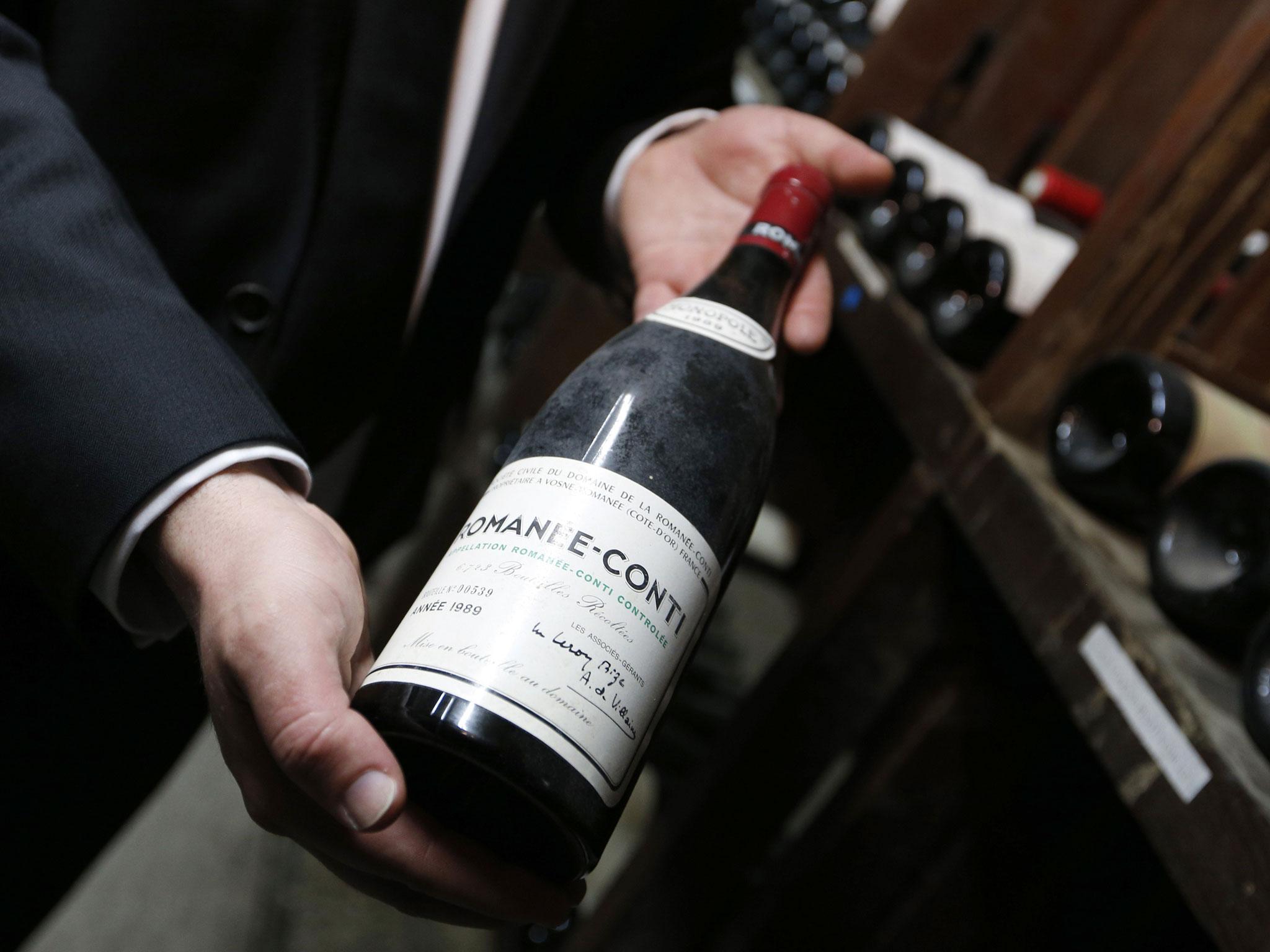You pay a higher rate of tax on barbecue wine than billionaires do on their Romanee Conti. I can fix that
A modest proposal to level the playing field as the Sunday Times Rich List shows that the billionaires can afford more exorbitantly priced wine than ever

We’re moving into the season for eating outside, or we will be when the weather stops making it feel more like very late autumn than late spring.
This got me to thinking about alcohol duty, especially that on wine, which is a staple of such reasonably Covid-safe occasions.
The Treasury has completed a post-Brexit review, looking at how it should work and whether licensed premises should get a cheaper rate to assist their post-pandemic recovery, which would mean higher rates for off-licence sales to keep them revenue-neutral. The results remain to be seen.
But the biggest problem with the current duty for consumers is that it is profoundly unfair. We’ve just got so used to it that we don’t often think about it.
A bottle of Tesco’s Hungarian I Heart Pinot Noir at £5.25 in the shopping trolley to drink in the garden has the same amount of duty – £2.23 – as a hedge fund manager indulging in a bottle of 2008 Romanee-Conti which Berry Bros & Rudd quotes at £24,002.68.
I’m not quite sure why they need to worry about that 68p or even the £2.68 at that price but never mind.
The reason I used I Heart Pinot Noir for the comparison is that the two wines are made from the same grape variety and it tickles me that there are some people who would be horrified at the mere thought of the pair of them being mentioned in the same sentence.
Anyhoo, some wine sellers have taken to pointing out that if you buy wine at around a fiver you’re getting stiffed because the amount of your outlay going towards the actual wine is negligible.
Bibendum, another wine seller, produced a rather nice graphic it entitled Vinonomics to illustrate this. At the £5 price point, which isn’t far off our I Heart Pinot, the majority of the purchase price goes to the taxman. Bibendum quotes duty at £2.23 and VAT of 83p, which combined get you to just above 60 per cent. That’s clearly in the “punitive” category.
Packaging and logistics are fixed costs, which Bibendum puts at 56p and it estimates the retailer’s margin at £1.07. All this leaves just 31p for the wine, barely more than 6 per cent of the purchase price. Ouch.
That “margin” isn’t all profit, by the way, because the retailer has their own fixed costs to cover unless, as the supermarkets sometimes do, they use cheap wine as a loss leader.
If you spend half as much again on a bottle (£7.50) you get wine worth about £1.43 – almost five times as much – while the taxman’s take falls to 46 per cent (the duty is fixed, the VAT goes up a bit).
At a tenner, and the wine is starting to account for a meaningful chunk of the purchase price – £2.70 or 27 per cent – but you still pay more to Rishi Sunak. The exchequer – via HM Revenue & Customs – gets £3.90 or 39 per cent.
It’s only when you start to inch into the fine wine category at £20 that the amount you’re spending on the wine (£7.03) outstrips the tax (£5.56).
Now there’s a reason why wine merchants such as Bibendum, and Naked Wines which has been making an online song and dance about this, highlight numbers like these in their marketing
The retailer’s margin jumps at each price point too, to £2.03 at £7.50, £2.84 at a tenner and £6.85 at £20 per Bibendum’s commendably honest estimates.
Pricier wine is more profitable wine. But that doesn’t detract from the core point that it is proportionately more lightly taxed and much better value for money if you can afford it.
Here’s where the wine merchants won’t thank me: One way to address this, if the review ever emerges from the long grass of Whitehall, would be to replace fixed duty with a straight up wine sales tax based on a percentage of the purchase price.
The Chancellor would, most probably, set it at a rate to make the change revenue neutral because the Treasury needs the cash right now.
This would mean people who can afford to buy better wine would pay a little more, which is how a progressive taxation system is supposed to work.
The economics aren’t the same for other sorts of booze but the unfairness of duty still applies, so the concept could be extended.
You may have spotted the gorilla in the room; the biggest problem with my plan. If you lower the tax on cheap booze like this, you’ll end up making booze cheaper and there’s potentially a high price to pay for that. A social price.
However, that problem goes away if at the same time you introduce minimum alcohol pricing, as Scotland has.
If you were to set that so the cheapest bottle of wine came out at a fiver, it would mean that the quality of the wine in that bottle would be (potentially) greatly superior to that today.
The billionaires would, meanwhile, pay a fairer rate for their extortionately priced tipples, which, given the wealth they’ve added through the pandemic as referenced by yesterday’s Sunday Times Rich List, they can clearly afford.
Join our commenting forum
Join thought-provoking conversations, follow other Independent readers and see their replies
Comments